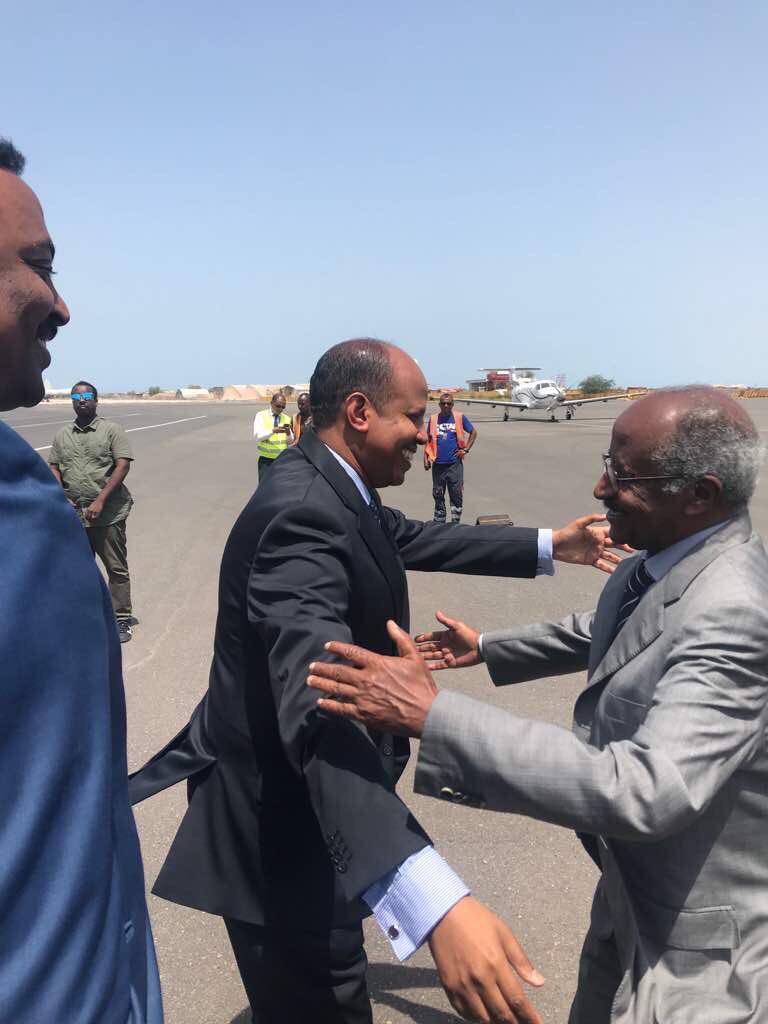For 5 years straight until 2007, Eritrea & Djibouti had annual military meetings. The relationship was unbroken until TPLF influenced Guelleh to instigate a border conflict in 2008 with their backing and attempt to trigger an offensive to capture the Eritrean port of Asseb. From 2008 to 2018, Djibouti and Eritrea were in a tense diplomatic tension. The media attention on the peace deal of 2018 between Eritrea and Ethiopia dominated the news headlines while neglecting an important moment between two other sisterly states normalizing relations.

Forward to now as we observed striking reactions to the Nov.18th French outlet Jeune Afrique interview of Djibouti’s President Ismail Omar Guelleh(Here). Below are relevant quotes where both states can have better effort and work toward a regional policy & cohesion. The views expressed by Guelleh on Isaias Afwerki is correct as he is a leader that has a track record of being emotional in his view of diplomatic engagement and takes tensions personally. Eritrea needs a leadership core who moves on cold strategic maneuvering not influenced by emotions and vendetta. Regardless, I believe the state of Eritrea should move beyond personal attachment and restore warm engagement with Djibouti pre-2008.
Djibouti and Eritrea share common views:
China
- Both share positive view on the strategic importance of China’s influence in the region and this would be a key point of engagement for Beijing to push.
Muslim Brotherhood & Secularism
- Both share views on the threat of Muslim Brotherhood on secularism and religious harmony.
Ethiopia
- Both recognize the stability of Ethiopia affects both states, and this is also a point of common interest to engage further.
Djibouti and Eritrea need each other.
Relevant Quotes:
The debt Djibouti owes China has for a long time been seen as excessive. Is this still the case today?
Our “Chinese debt” is much lower than what some have said. It amounts to $450m, compared with Ethiopia’s $16bn and Kenya’s $20bn. We have worked really hard on debt restructuring and servicing. The company managing the Addis Ababa-Djibouti railway line, which is the main source of this debt, will be privatised, with Ethiopia and Djibouti retaining ownership of the infrastructure.
Why has the restoration of diplomatic relations between Ethiopia and Eritrea still not had the slightest positive effect on your relationship with Eritrea’s president, Issayas Afeworki?
I met with Issayas in Jeddah in September 2018, but neither the Saudi’s mediation team nor Ahmed’s efforts produced a “peace of the braves”. This is despite the fact that I took the step of releasing 19 Eritrean prisoners of war, which Asmara didn’t want, it seems.
The only explanation I see for this stonewalling is a psychological one: Issayas is unyielding and resentful, and we won’t repeat the exercise. The former Ethiopian prime minister, Meles Zenawi, had warned me: “Once you’re mad at him, he never forgets.”
The US has raised concerns about your relations with China on several occasions. It has even been reported that an American general suggested that Beijing had “purchased” the Port of Djibouti. Have these suspicions been cleared up?
They were totally baseless, but I’m not sure they’ve gone away. For instance, we don’t understand why the $25m loan the World Bank promised us in the wake of the COVID-19 pandemic has taken so long to materialise. The president of the World Bank, David Malpass, is a US citizen. Is there a causal connection? I wonder.
You’re confronted with a determined opposition, whose leaders are divided, including when it comes to their methods of action. Do you benefit from that?
I think it’s too bad. Every democracy needs an opposition that believes in discussion, comparing policies and the country’s future. Our opposition can be summed up by the slogan “Me or chaos”. Whether it’s Daher Ahmed Farah, Abdourahman Mohamed Guelleh or Adan Mohamed Abdou, none of them abide by the rules for forming a party. A party isn’t just some group you register with a founder and 10 or so members that never holds a convention. But we prefer to look the other way.
This state of things came about because the Islamist faction of this coalition, MoDeL [Movement for Democracy and Freedom] – the local chapter of the Muslim Brotherhood – used religion as a mobilising force. We have taken the necessary measures to reduce its impact. The coalition’s main leaders have left Djibouti for Turkey and Canada, where they have nothing other than Facebook to try to indoctrinate followers.
As for sermons, their content is strictly regulated and comes under the exclusive remit of the Ministry of Muslim Affairs. Sermons are sent to each mosque by email, and imams can’t add a single word to them during Friday prayers. I think the French authorities would do well to follow in our footsteps in this regard. It’s the only way to prevent extremism from thriving.